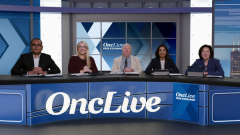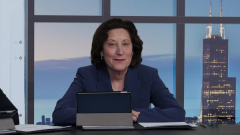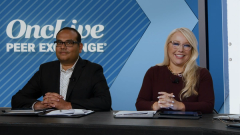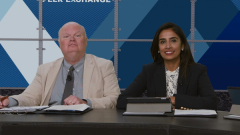
Novel Therapy for Relapsed/Refractory HR+ BC: Oral SERDs
A brief overview of oral SERDs currently being investigated in the setting of relapsed/refractory HR+/HER2- breast cancer.
Episodes in this series

Transcript:
Hope S. Rugo, MD, FASCO:Aditya, the SERDs, the EMERALD trial [NCT03778931] results; I haven’t seen them yet. What is your take on that?
Aditya Bardia, MD, MPH: We’ll have to look. We’ve just seen press releases from the other 2 trials, and the only data that’s published now is from EMERALD. EMERALD did meet its primary end point, and benefit in the ESR1-mutant population appeared to be larger than the overall population in the ESR1 nondetected population. It’ll be interesting to see in EMERALD-3, which is the trial with elacestrant, as well as the acelERA (NCT04576455) trial which is the trial with giredestrant, the proportion of patients with ESR1 mutation. As we get more information related to that, then we can put this in context. The other thing that’s striking is, single-agent endocrine therapy does have certain response rate or median progression-free survival. But one can imagine with combination therapy, it’s likely going to be better; that’s why it is interesting combining these oral SERDs with other targeted agents, be it PI3 kinase inhibitors or everolimus, or even continuing the CDK4/6 inhibitor. Even a patient has received in the first-line setting, in the second-line setting the field is moving toward continued CDK4/6 inhibition it’ll be interesting to combine these oral SERDs with CDK4/6 inhibitors.
Hope S. Rugo, MD, FASCO:Yes, or changing it from one to the other that we’ll talk about in just a moment.
Transcript edited for clarity.










































